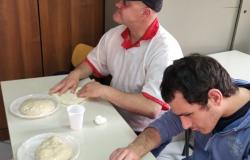PADUA – Artisan businesses and especially those in the construction sector are faced with a double problem. On the one hand, the Government’s recent decisions regarding the…
Already a subscriber? Log in here!
SPECIAL OFFER
SPECIAL OFFER
MONTHLY
€4.99
€1 PER MONTH
For 3 months
ACTIVATE NOW
Then only €49.99 instead of €79.99/year
Subscribe with Google
PADUA – Artisan businesses and especially those in the construction sector are faced with a double problem. On the one hand, the Government’s recent decisions regarding the Super bonus, are a source of concern for the current situation and the repercussions that these measures will have for citizens and businesses. On the other hand, the EU directive on the energy requalification of homes could be an excellent opportunity. There will be a need for knowledge of various “green jobs” including: carpenters, electricians, plumbers, engineers, carpenters, craftsmen or surveyors.
But when? The government has two years to implement the decision and above all: will it make a fund available to help those who have to adapt?
If they ask artisan businesses in the home sector which in the province of Padua are 11,865. Of these, 8,126 work in construction, 2,644 in the installation of systems and 1,095 in the wood sector. Currently, there are a total of 61,350 workers working in the craft sector and of these 23,926 work in the artisan categories of the home sector: construction, installation engineers and wood.
CREDIT ASSIGNMENT
And for the moment there is already another problem. The Superbonus which cost 122 billion to the public coffers was blocked by the Council of Ministers on 27 March with a stop to the transfer of credit and discounts on invoices. The passage provides for “the elimination, for interventions subsequent to the entry into force of the new rules, of the remaining cases for which the exercise of the options for the so-called invoice discount or for the transfer of credit in place of the deductions”.
There are thousands of companies that are suffering the consequences of the latest emergency measure which has further reduced and bureaucratized the mechanisms of credit transfer and invoice discounting. The provision is negatively impacting contracts already in place but whose execution has not yet begun, compromising the stability of the companies involved.
«We are recording a general concern in the sector, especially for what will happen in the second part of the year. Currently, there is still work in progress, but when these are finished, what will happen?” Zanfardin wonders. «Many condominiums have already stopped work due to lack of liquidity, no longer being able to grant credit. If this is the trend, we cannot rule out resorting to redundancy payments in the near future.”
SUPERBONUS
If we analyze the curve of employed positions in artisan construction companies in Italy, we see that the collapse due to the 2008 crisis produced a decrease in employment of 56.8% between 2007 and 2016. A figure that has largely been recovered after 2020, as a result of the construction bonuses and in particular the Superbonus.
THE POSITION
«The impact of the incentives was a powerful accelerator of economic development continues President Dall’Aglio – triggering a driving force that produced an impact of 3 billion and 793 million euros in our province, with positive effects that concerned not only the construction, but many other sectors: building products and materials, engineering and metallurgy, household appliances, furniture and transport. This positive effect can only be achieved with certain and structural rules. We must aim for measures that do not undergo continuous changes and that respond effectively to the needs of citizens and businesses.”
© ALL RIGHTS RESERVED
Read the full article at
The Gazzettino






